Two years of Young Expert Programme: Etienne Nacoulma from Burkina Faso
28 November 2019Etienne Nacoulma was part of the Young Expert Programme (YEP) for two years. During this period, he worked for the Water Operator Partnership (WOP) between World Waternet and the regional water authority l’Agence de l’Eau du Gourma (AEG). In this interview, Etienne reflects on two years of YEP.
How did you end up the water sector?
I was studying Geology at the Université de Ouagadougou Pr. Joseph KI-ZERBO in Burkina Faso, and one of the main topics of my studies was groundwater. I had a very inspiring Hydrology professor, Dr. Julien Nikiema. He told us a lot about the challenges of finding proper groundwater in many villages in Burkina Faso, and also how this impacts the people. He taught us technical calculations by using Geophysical surveys to study the depth and quality of underground water reservoirs, before drilling. This intrigued me so much, I decided to do my Master’s degree in Hydrogeology. Also, I wanted to contribute to sustainable access to drinking water for the people of Burkina Faso.
During my Master’s I worked as an intern at a consultancy firm, a specialist on geophysical surveying. After, I did an internship at a company that specializes in drilling, and learning a lot about the big machinery used for drilling. Then I started the Young Expert Program (YEP).
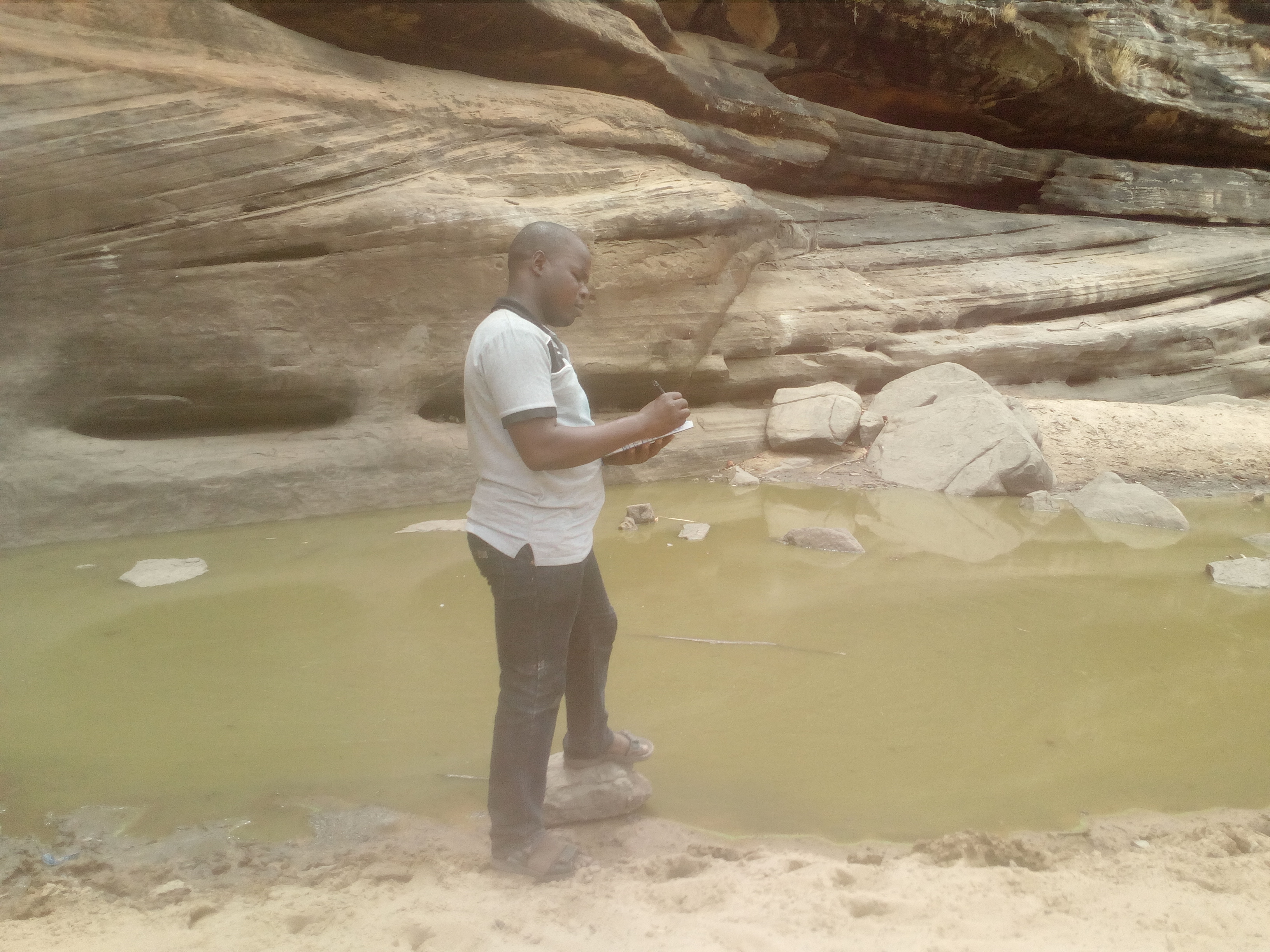 Hydrogeological identification and descriptions of water springs
Hydrogeological identification and descriptions of water springs
And how did you learn about YEP?
One of the professors at the university Dr Elie Gaetan SAURET through the recommendation from Dr Jean Pierre SANDWIDI pointed me to the program. And I said: “yes, I am ready to learn from whoever, wherever!”. So I sent my cv and motivation letter to my professor’s friend, Piet Johan RADSMA, who works at Waternet. Then I was accepted to YEP.
Did you ever visit the Netherlands before you came here for the first YEP training?
No, as a matter of fact, I never even visited another country outside of Burkina Faso! That is, except for Ivory Coast where I was born, but I have no memories of that of course.
And when you came to the Netherlands the first time, what was your impression?
It was beyond my imagination. I arrived at Schiphol Airport, and was overwhelmed by the number of people there. I have absolutely no idea where to go. I was supposed to go to the meeting point where I would be picked up. But I had no idea where that was located. At that time, my English was not very good so I was afraid to ask for help. Later, I found out that Dutch people are very open and always willing to help. Moreover, my English, luckily improved considerably in the past two years.
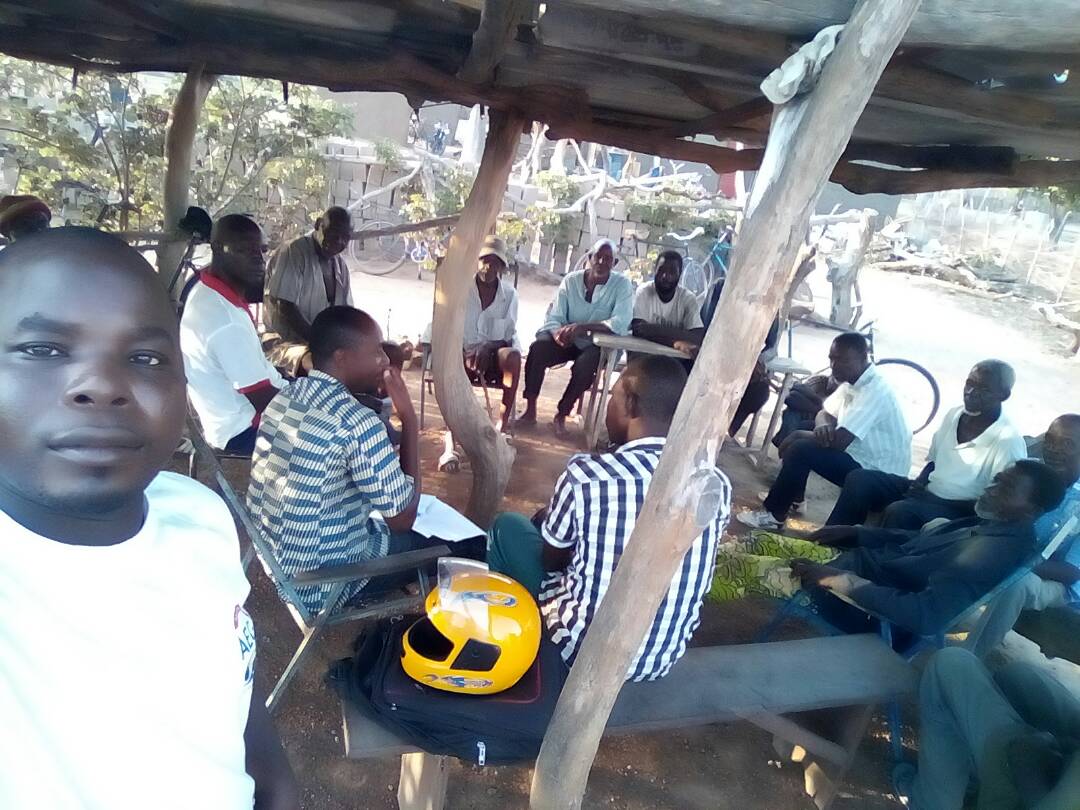 Consultation with local water users
Consultation with local water users
What did you think of the YEP trainings?
Very interesting. Firstly, it is a very multi-cultural group, so we learn a lot from each other. Everybody has his or her own story to tell. Secondly, it provided me the opportunity to expand my international network. We all made a Personal Development Plan, and in additional, we all got appointed a coach. I never had the opportunity to be coached before, and this was amazing. His name is Anne de Groot, and he provided me guidance for both my professional and personal life. My coach said to me: “you are in the driver’s seat, you tell me where I can help you with”. For example, he taught me how to be more direct, like Dutch people.
Is it helpful for you, being more direct?
Absolutely. Now I don’t have the tendency to keep my problems to myself and overthinking them. Just discuss it, and then the solutions usually reveals itself. As a joke, some people now even say to me: “Etienne, you have become more Dutch than Burkinabe!”. And luckily, people in Burkina Faso also seem to appreciate the directness.
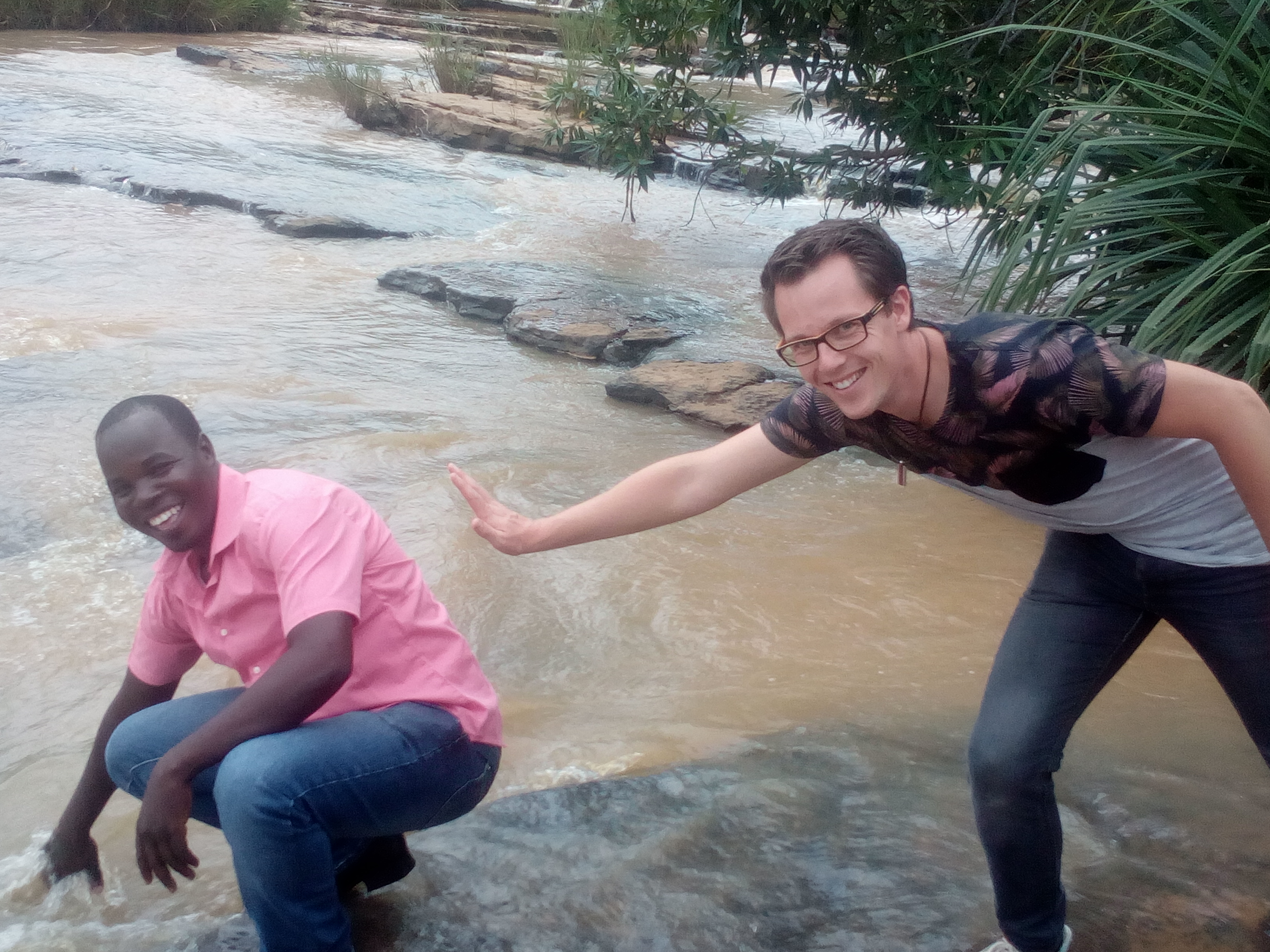 DWA mission at South-West Burkina Faso
DWA mission at South-West Burkina Faso
And what have you been up to the past two years?
I have mostly been working on integrated water resource management. But also, I have set up a reforestation project in the Kou region. This is a project people have been particularly happy with. We solved a lot of problems in relation to flooding and sedimentation. I have also been involved in the implementation of a database for monitoring the water quality and quantity, together with the water authority L'Agence de l'Eau du Gourma. I have provided training to staff of Burkinabe water authorities on modelling, using a free software called WEAP (Water Evaluation And Planification). I trained technical staff from the water authorities on data use, modelling and calculation. They really enjoyed that and indicated how important it is for their work. I was involve in making proposal for GIRE Or ( Integrate water resources management relate to gold mining ) project implementation. This projet is to avoid water pollution by gold mining chemical products. I helped organize some workshops for Faso Koom, they do a lot of workshops and we can help them with organization and translation.
And what of these projects and activities that you have been working on, which ones are you most proud of?
I would say GIRE-OR. There is a lot of artisanal mining in Burkina Faso that pollutes the water. This project is focused on taking care of the water quality in regards to the mining and how we can deal with this pollution. I was really interested in this project because of my background as a geologist. I know how they look for gold in an artisanal way, how these heavy metals are used and how dangerous it is. I am looking forward to continue this project. On top of that, I am also very interested in modeling. I learned how to run models at the IHE Delft , the water education institute. I like these two projects the most.
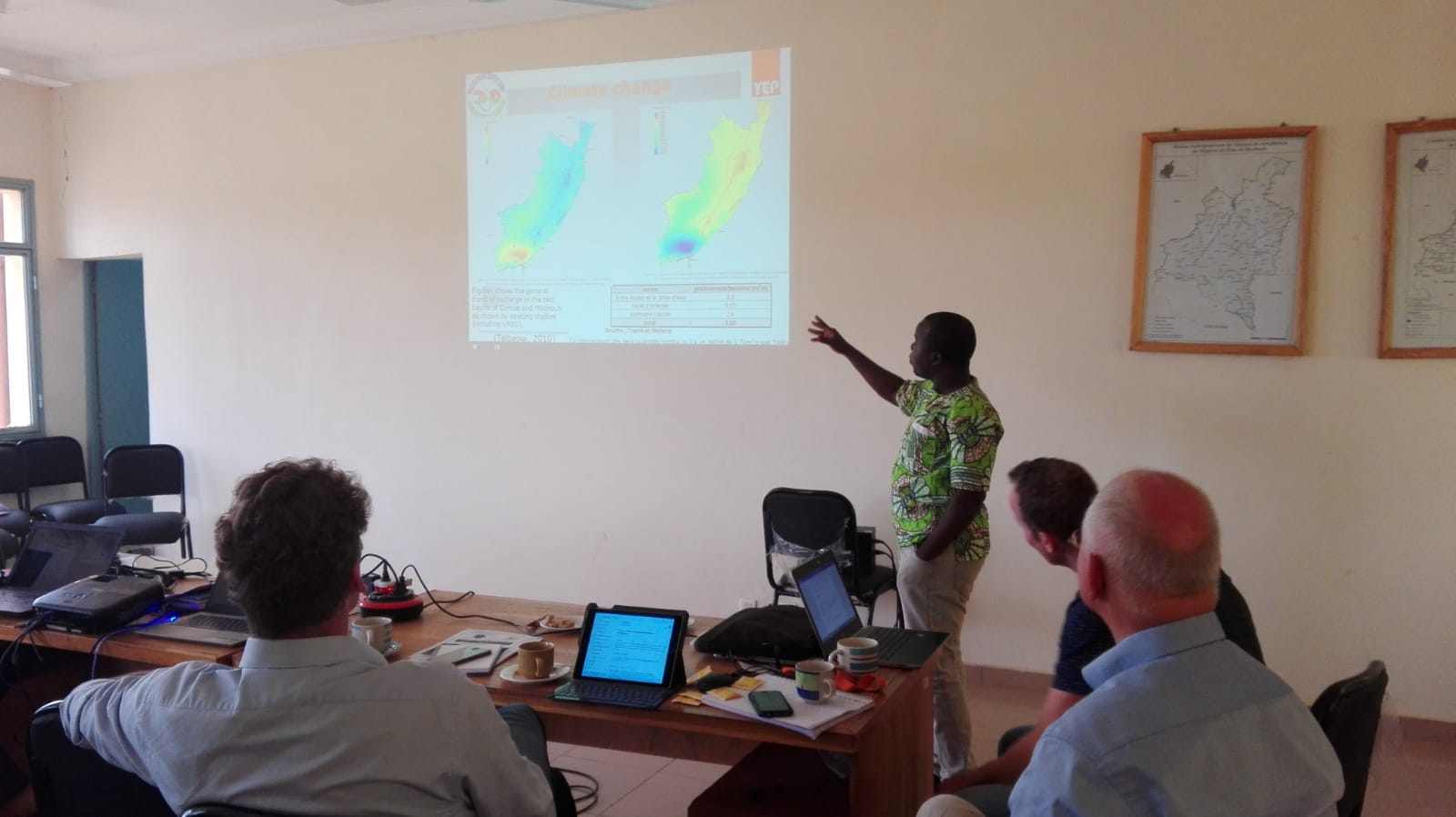 Presentation of groundwater availability data for the Kou Basin
Presentation of groundwater availability data for the Kou Basin
And you also hope to find safer ways for the miners to do their work. I understood that they use Mercury?
Yeah, they use Mercury and cyanide. These products are very dangerous for humans, animals, for the entire environment. And they the miners are unaware of the dangers, they just want to find the gold. They use their whole income from mining to go to the hospital for their health – it’s not good, we have to find a better way.
And how do you think you can find other ways for them to work safely?
First, the first step is to organize them into a cooperation, and when they are in this group you can teach them about how to get gold safely and what the best practices are. It is very easy, but first you have to organize them.
How do they respond to this?
They are very positive, they look forward to getting this kind of help. We have contact with Syndicate and also the ministry that is responsible for mining and they really want to also give their input.
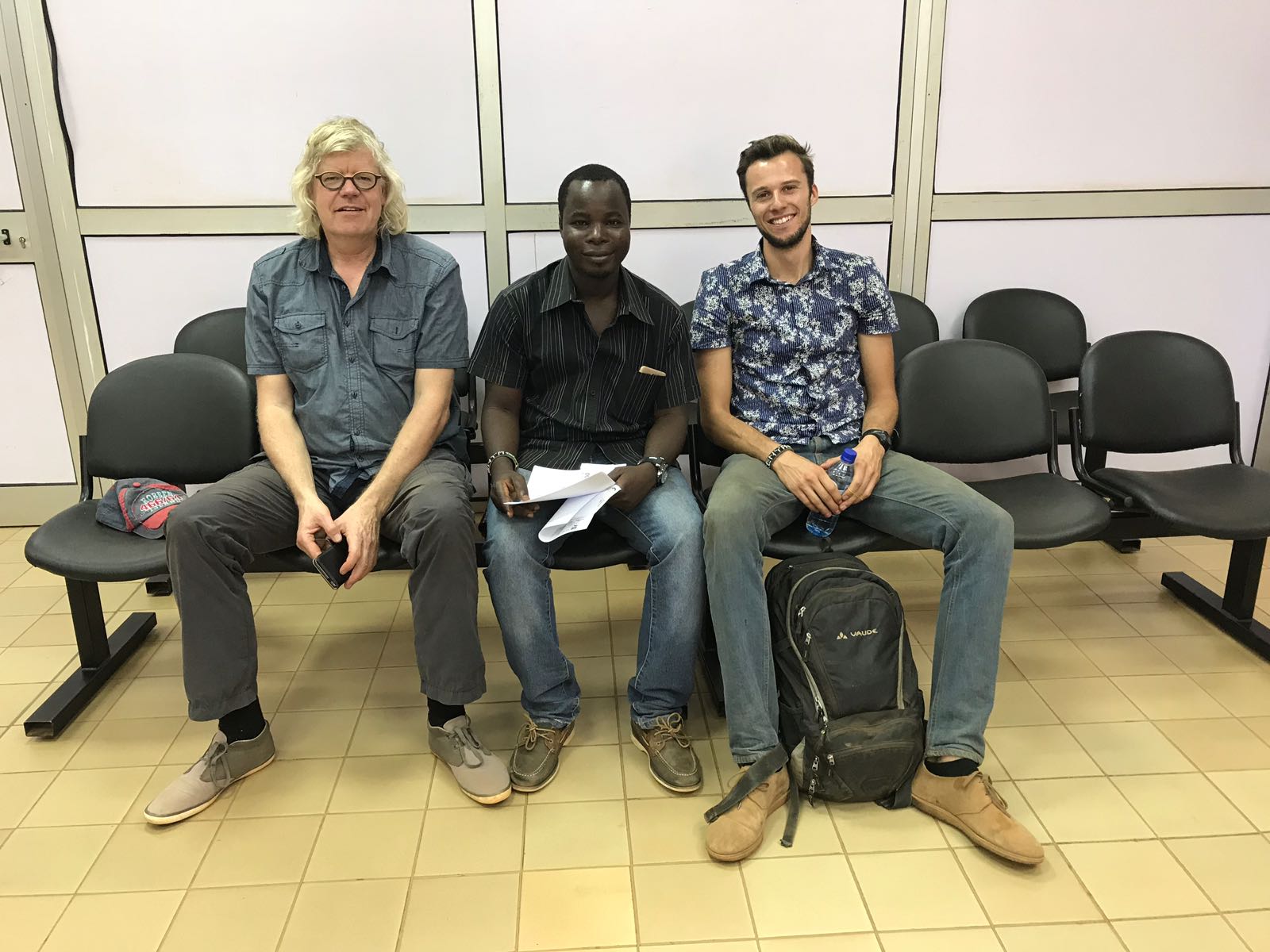 Etienne with YEP colleague Ewoud and his mentor Piet Johan
Etienne with YEP colleague Ewoud and his mentor Piet Johan
Sounds like a very fulfilling tasks, that you know you can improve the lives of some people. How was your partnership with Ewoud (Dutch YEP partner, red.)?
We spent two years together. We worked very closely and it was a perfect collaboration. I learned a lot from him. He is an hydrologist, and I’m a geo-hydrologist, so it was a combination of two disciplines. Sometimes if I don’t have an answer to a specific question, he knows the answer. And it is the same for him, if he wants to learn anything about geology, or about the dangerousness of a certain heavy metal, he would ask me. It also helped me to learn English.
And he probably learned French from you.
Yes, he learned a lot of French because everyone is speaking French all the time. If I want to speak English, I can only talk to Ewoud. So he learned better than me!
Aside from work, do you also have a good relationship?
Yes, definitely. Professionally we did a lot of projects together. We did monitoring projects together, and we organized many things together with good results.
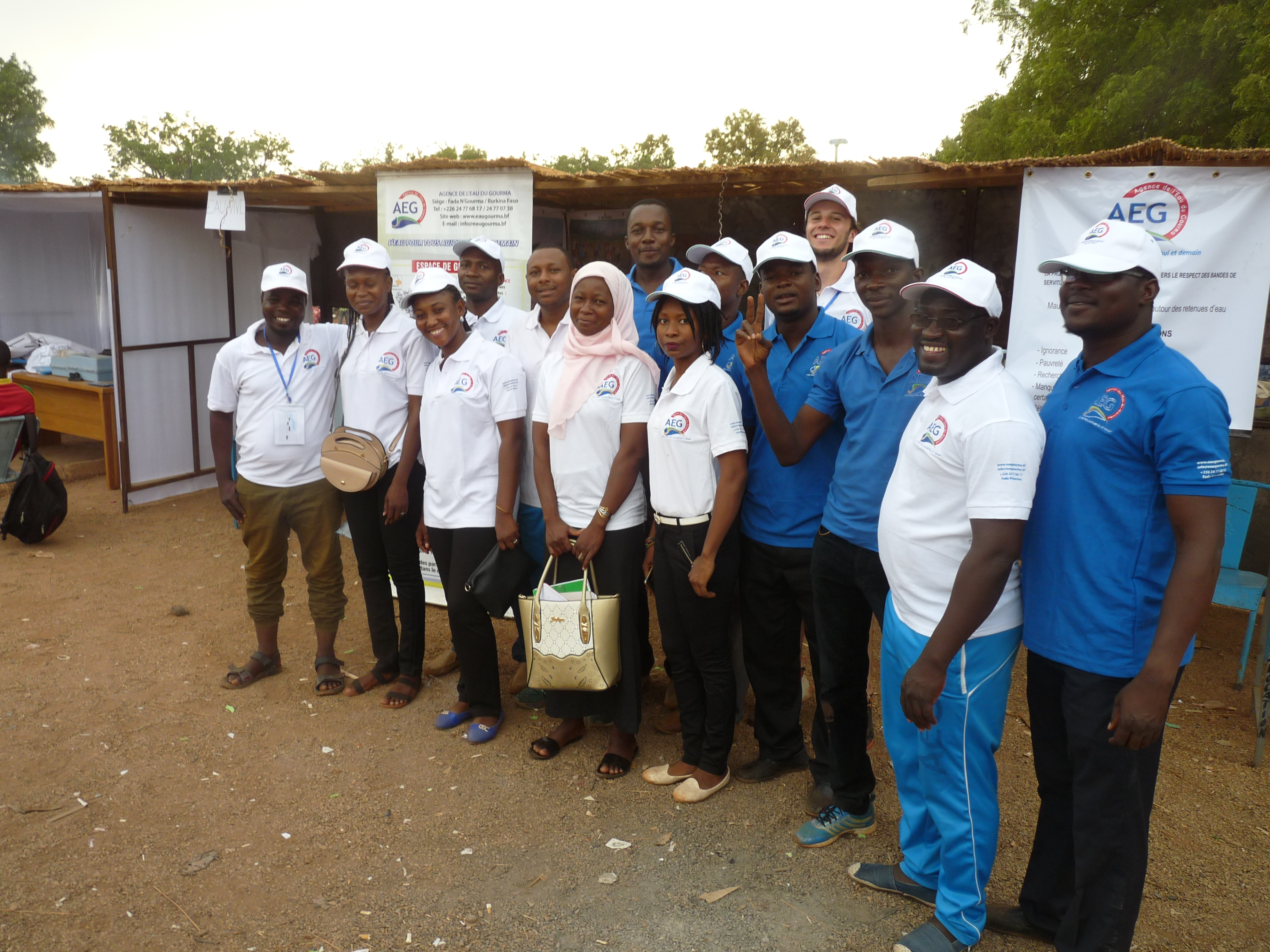 Water fair organisation waith Gourma water board team
Water fair organisation waith Gourma water board team
That is good to hear. What will you do the last two months?
Our activities for the last two months will be working on the Blue Deal program. We are starting the Blue Deal program together with Faso Koom. And a transboundary project for water management between Mali and Burkina in the Sourou area and also in Bagré area, together with Ghana. It’s a very interesting project that I’m looking forward to start as part of the Blue Deal program. We are doing the preparation for the program now.
Okay, so that is your next two months. And what are you plans for after the YEP programme?
After YEP, if it is possible to continue to work with the Dutch Water Authorities, that would be perfect. It’s very useful and international work. Everywhere I go, if I say I work for the Dutch Water Authorities, they say “you are lucky.” The Dutch are very good in water systems, so this is the right way to learn as much as possible and go as deep as possible into water management. That’s why I want to continue working with the water authorities.
Do you want to stay in Burkina Faso, or does it matter to you?
I will go anywhere. I will go on the moon, if they want. I am ready to go anywhere to learn.
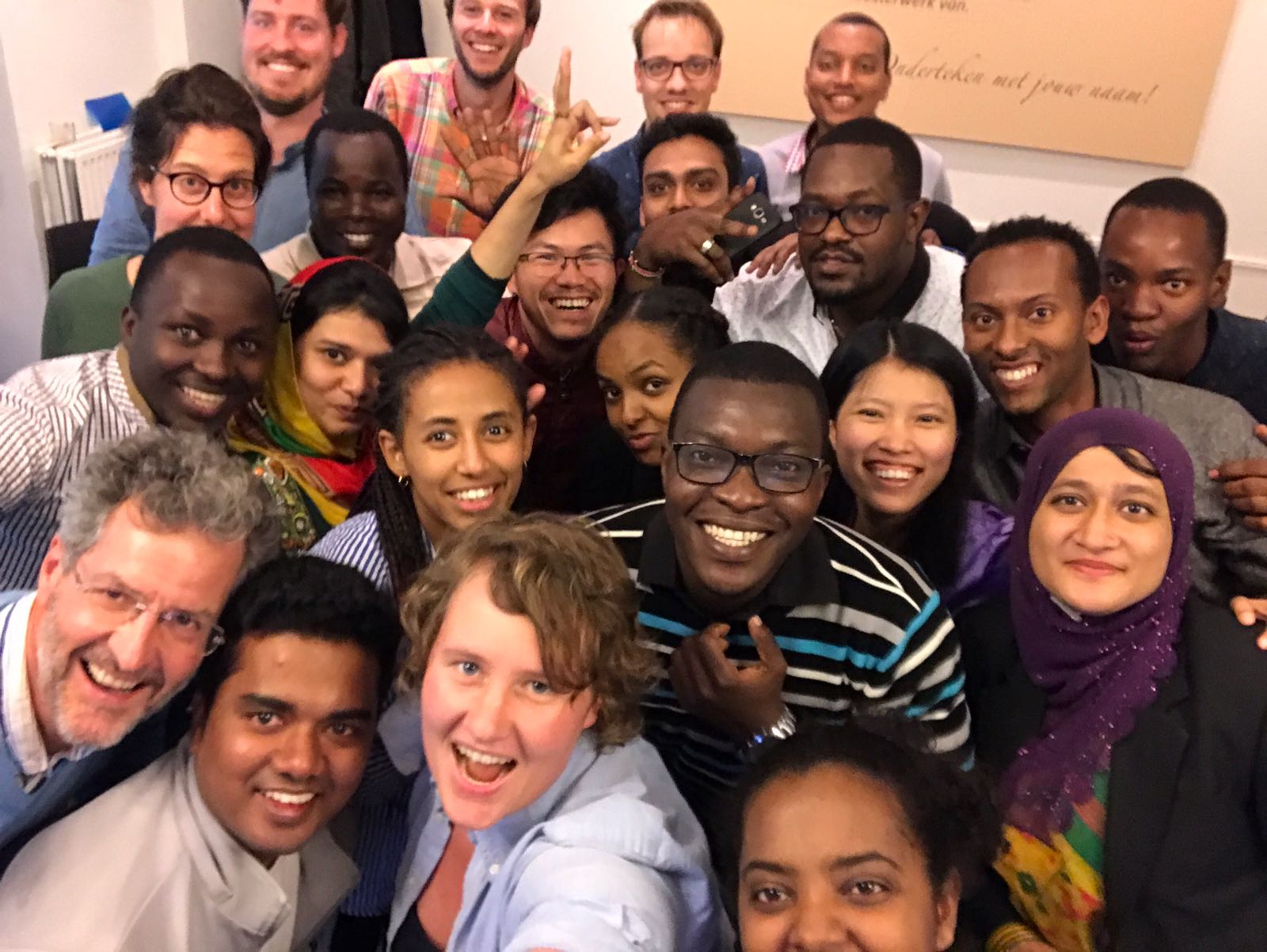 Etienne's YEP group
Etienne's YEP group
You wouldn’t prefer to stay in Burkina Faso, or does it really not matter for you?
No, it doesn’t matter for me. It’s good to be open and to be curious. I am ready to give my input everywhere, anywhere you need me. Just let me know and we will go for it.
Let’s hope that it is possible then, are they working on it?
Yes, Koen (Maathuis, red.). He is our director and West African manager.
What kind of training did you do at the IHE?
There I learned about the applied groundwater modeling. It is mostly to see exactly the availability of groundwater and how to use groundwater in a sustainable way. It is also useful for tracking the pollutants in the groundwater, we call it particle tracking. We also learned a lot about seawater intrusion – but in Burkina Faso we don’t have the sea. Maybe we can apply it better in the Netherlands than Burkina.
And was this training part of the YEP programme?
No, it’s not part of the YEP programme, but it is covered by YEP. In the YEP programme you can get financing to participate in seminars, go to workshops, or go for short courses. I decided to learn, because I really wanted to understand how to use the model. In Burkina Faso there is a lot of pollution, so it is good to apply this in Burkina Faso.
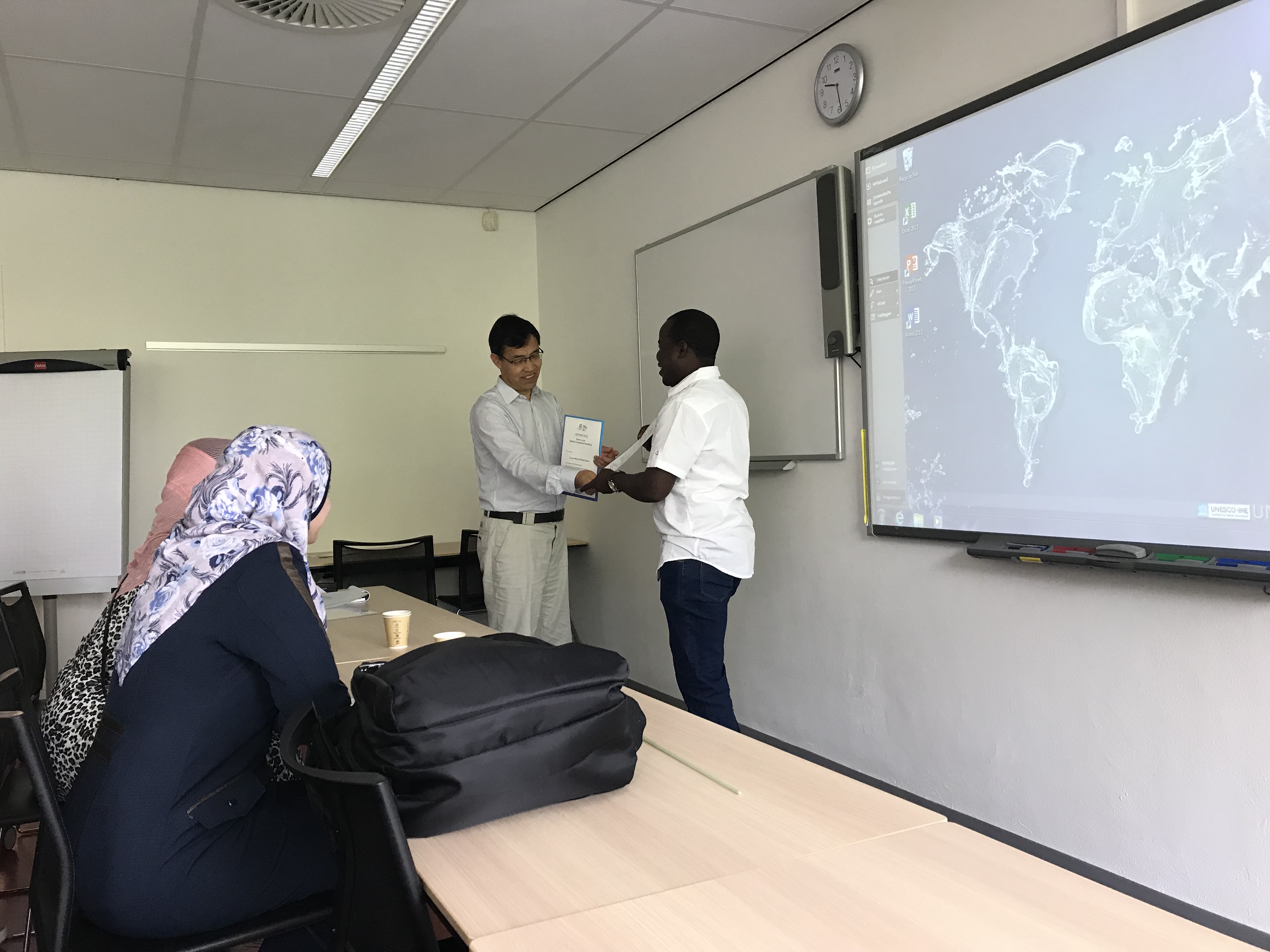 Etienne receives his IHE Delft certificate from his professor
Etienne receives his IHE Delft certificate from his professor
Would you recommend the YEP programme to other people?
Yes. If there is a way to promote YEP, I will do it all my life. It’s a very good programme. I can recommend everyone to try it just for one year.
So it provided a lot to you. That is good to hear. Okay, is there anything you would like to add?
Yes, so first of all to thank you and also all your team members for the trust that you put in me. Thanks a lot, I learned a lot, I am well-trained and I’m very happy for that.
|
Note by World Waternet Etienne started working for Dutch Water Authorities base in Ouagadougou, Burkina Faso as Program coordinator at Faso Koom, and is the representative for the Dutch Water Authorities within the cooperation between five water authorities from Netherland and five water authorities in Burkina Faso. His office located in the same building as the Secretary of Integrated Water Resources Management at Ouagadougou. Both World Waternet and Etienne are very proud that Etienne is able to continue the Dutch-Burkinabe water cooperation to work towards safe, clean and sustainable water resources in Burkina Faso. |